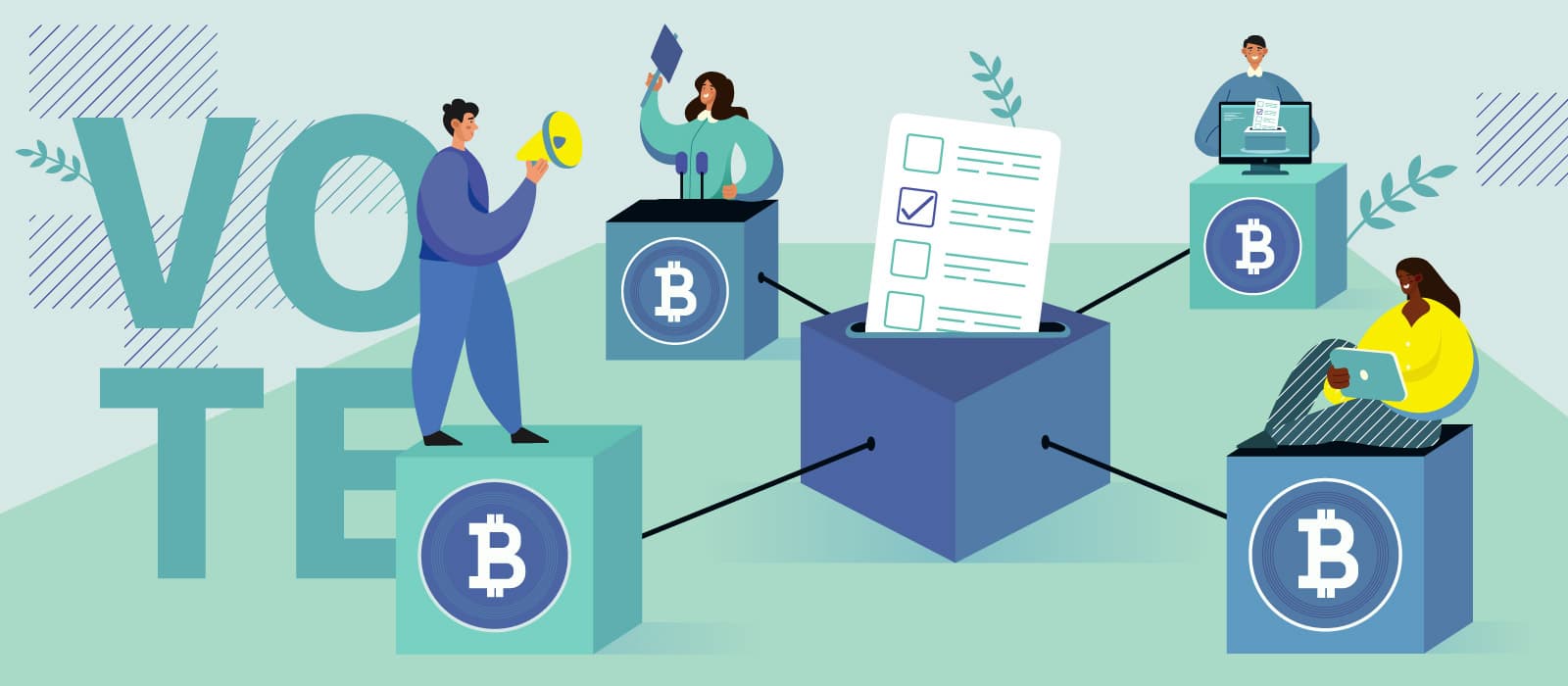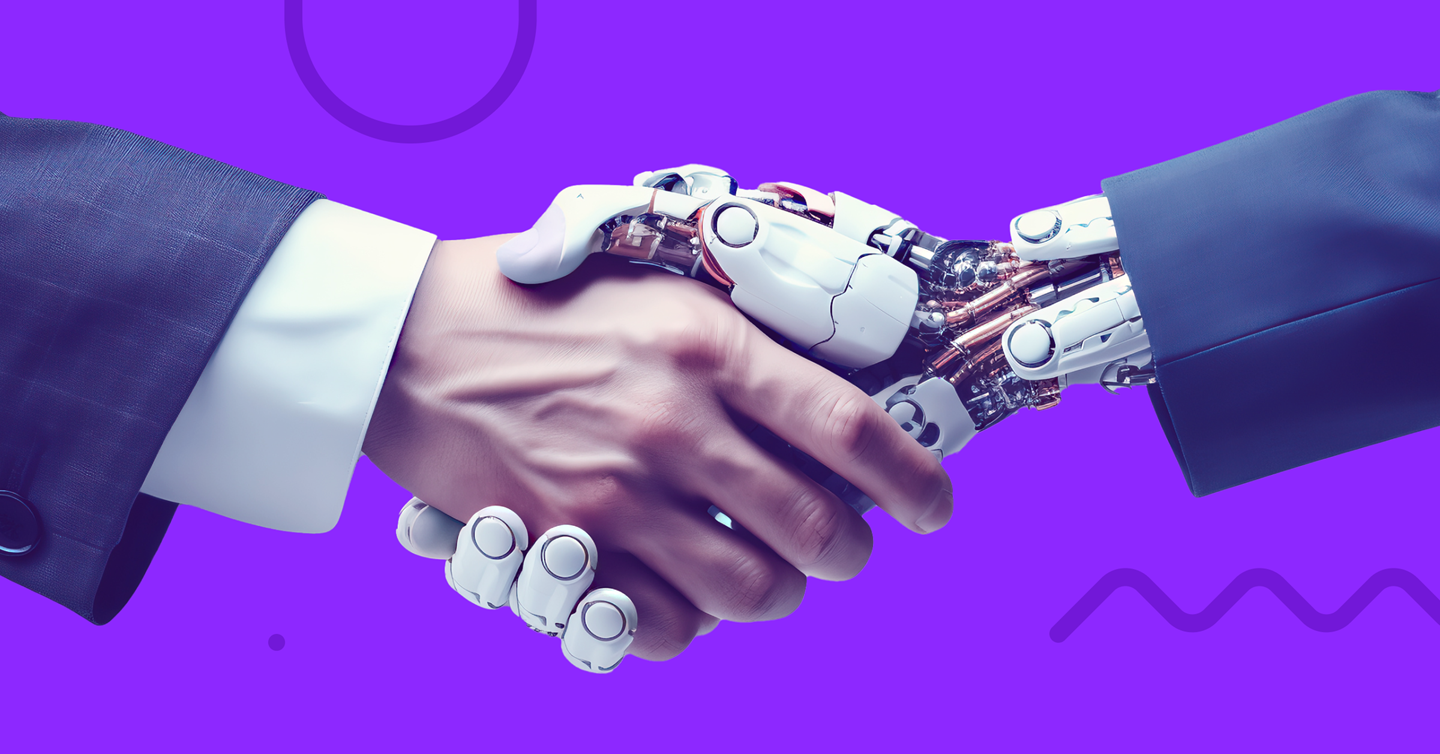
Tech Tales: How Podcasts and Audio Dramas Are Shaping Pop Culture?
Alina Minhas - 13 Dec 2023

Exploring AI and Blockchain Solutions in Government Elections
Introduction Significance of modernizing voting systems Overview of AI and Blockchain technologies Current Challenges in Voting Systems Security concerns Accessibility issues Trust and transparency issues AI in Government Elections Enhanced voter authentication Predictive analytics for voter turnout Improved fraud detection Blockchain in Government Elections Decentralized and tamper-proof voting records Transparent and auditable election processes Elimination of intermediaries and potential for cost reduction AI-Blockchain Integration Strengthening security through combined technologies Ensuring privacy and data protection Enhancing overall efficiency in election management Case Studies and Pilot Programs Successful implementations globally Lessons learned from early adopters Potential Concerns and Ethical Considerations Impact on voter privacy Addressing biases in AI algorithms Ensuring equal access for all citizens Future Prospects Continued research and development Collaboration between governments and tech innovators The role of public awareness and acceptance

AI-powered Marketing Strategies in Corporate Campaigns
IntroductionDefinition of AI-powered MarketingImportance of Personalization and Engagement in Corporate CampaignsPersonalization in MarketingRole of AI in PersonalizationBenefits of Personalized MarketingExamples of Successful Personalization StrategiesEngagement in Corporate CampaignsSignificance of Engagement in MarketingAI Tools for Enhancing EngagementCase Studies Illustrating Effective EngagementSynergy of AI, Personalization, and EngagementIntegrating AI into Personalized MarketingStrategies for Boosting Engagement through AIReal-world Examples of AI-Enhanced Personalized CampaignsOvercoming ChallengesCommon Challenges in Implementing AI in MarketingSolutions to Address Challenges in Personalization and Engagement Future TrendsEmerging Technologies in AI for MarketingAnticipated Developments in Personalization and Engagement

Digital Fashionistas: The Rise of Virtual Clothing in the Metaverse
Alina Minhas - 04 Dec 2023
IntroductionDefinition of Digital FashionThe Metaverse and Virtual SpacesThe Emergence of Digital FashionOverview of Virtual ClothingEvolution of Fashion Trends in Online CommunitiesFactors Driving the TrendInfluence of Social MediaRise of Virtual IdentitiesImpact on Traditional FashionChanging Consumer BehaviorOpportunities and Challenges for Fashion IndustryKey Players and PlatformsVirtual Fashion Designers and BrandsPopular Metaverse PlatformsChallenges and ConcernsSustainability in Digital FashionCultural and Social ImplicationsFuture ProspectsGrowing Market for Virtual ClothingIntegration of Digital Fashion in Mainstream Culture

The implications of Human-Chatbot interaction
Alina Minhas - 28 Nov 2023
Definition of chatbotsGrowing use of chatbots in various domainsHuman-Chatbot InteractionsTypes of interactions (spoken, written, visual)Benefits of human-like interactionsPsychological Impacts of ChatbotsEmotional support and companionshipReduction of social isolation and lonelinessCognitive and behavioral changesEthical ConsiderationsThe potential for dependence and over-reliance on chatbotsPrivacy and data security concernsFuture TrendsAdvancements in natural language processing and artificial intelligenceIntegration of chatbots into mental health treatment plansLegal ConcernsEnsuring ethical use of chatbots in mental healthProtecting user privacy and data

Pros and Cons of AI-Generated Music
Alina Minhas - 27 Nov 2023
IntroductionThe transformative impact of artificial intelligence (AI) on the music industry.AI used recently to create the last Beatles songAdvantages of AI MusicDemocratization of music production, making it accessible to all.Quick and efficient music generation, eliminating copyright issues.Personalized compositions based on individual preferences.Concerns and ChallengesPotential impact on human artists and unique artistic expression.Complex legal questions regarding copyright ownership.AI's limited understanding of cultural context and emotional nuances.The Harmonious CoexistenceStriving for a balance where AI enhances the music industry rather than undermines it.AI as a tool to streamline the creative process for artists.Personalized listening experiences based on user preferences.

AI: Your Professional Ally in the Digital Age
Alina Minhas - 27 Nov 2023
Introduction:Emphasis on the potential of AI in enhancing the professional landscapeInnovations making way for opportunitiesThe positive impact of AI tools across various industries. AI Tools and Their Impact on Industries:Discuss how AI tools are revolutionizing industries like healthcare, finance, and manufacturing.Explore examples of AI-powered technologies such as machine learning, automation, and data analytics. Displacement and Adaptation:Addressing concerns regarding job displacement due to AI.Highlighting how professionals can adapt by upskilling and embracing new roles created by AI.Exploring the concept of human-AI collaboration in the workplace. Debates and Concerns Surrounding AI:Ethical considerations and biases in AI systems.Analyzing the potential impact of AI on privacy, security, and job markets.Include perspectives from experts and industry leaders. The Need for Education and Adaptability:The importance of education and continuous learning to stay relevant in the AI-driven world.Highlighting the need for professionals to embrace adaptability and develop skills that complement AI technologies.Discussing the role of organizations and educational institutions in preparing professionals for the future.

How to garden
Umair Khalil - 27 Nov 2023
Step by step process:Get SeedThrow it on the ground (soil)Water it as long as you canDone

Trees are bad for environment
27 Nov 2023
For many, economics is technical, jargon-laden, yet abstract, making it intimidating and inaccessible. But its impacts are real: rising inflation due to, amongst others, supply chain shortages in the aftermath of the coronavirus and Russia’s invasion of Ukraine is eating into pockets of families across the globe and it’s hitting all areas of daily life. In Europe, we have to spend on average 8.1% more money on food (in Bulgaria this figure is 19%). For poor families, this can be life-threatening.So while economic decisions have a massive impact on our lives, they are taken by a minority who understand its principles and are little understood by the majority they affect. In a book by economists Joe Earle, Cahal Moran and Zach Ward-Perkins Econocracy published in 2017, the authors criticise the dominance of economic expertise – mostly orthodox economic expertise – in determining economic decisions and how these decisions have been removed from the wider public eye and validation.To make things worse, were you to study to become an economist, you would most probFor many, economics is technical, jargon-laden, yet abstract, making it intimidating and inaccessible. But its impacts are real: rising inflation due to, amongst others, supply chain shortages in the aftermath of the coronavirus and Russia’s invasion of Ukraine is eating into pockets of families across the globe and it’s hitting all areas of daily life. In Europe, we have to spend on average 8.1% more money on food (in Bulgaria this figure is 19%). For poor families, this can be life-threatening.So while economic decisions have a massive impact on our lives, they are taken by a minority who understand its principles and are little understood by the majority they affect. In a book by economists Joe Earle, Cahal Moran and Zach Ward-Perkins Econocracy published in 2017, the authors criticise the dominance of economic expertise – mostly orthodox economic expertise – in determining economic decisions and how these decisions have been removed from the wider public eye and validation.To make things worse, were you to study to become an economist, you would most probFor many, economics is technical, jargon-laden, yet abstract, making it intimidating and inaccessible. But its impacts are real: rising inflation due to, amongst others, supply chain shortages in the aftermath of the coronavirus and Russia’s invasion of Ukraine is eating into pockets of families across the globe and it’s hitting all areas of daily life. In Europe, we have to spend on average 8.1% more money on food (in Bulgaria this figure is 19%). For poor families, this can be life-threatening.So while economic decisions have a massive impact on our lives, they are taken by a minority who understand its principles and are little understood by the majority they affect. In a book by economists Joe Earle, Cahal Moran and Zach Ward-Perkins Econocracy published in 2017, the authors criticise the dominance of economic expertise – mostly orthodox economic expertise – in determining economic decisions and how these decisions have been removed from the wider public eye and validation.To make things worse, were you to study to become an economist, you would most probFor many, economics is technical, jargon-laden, yet abstract, making it intimidating and inaccessible. But its impacts are real: rising inflation due to, amongst others, supply chain shortages in the aftermath of the coronavirus and Russia’s invasion of Ukraine is eating into pockets of families across the globe and it’s hitting all areas of daily life. In Europe, we have to spend on average 8.1% more money on food (in Bulgaria this figure is 19%). For poor families, this can be life-threatening.So while economic decisions have a massive impact on our lives, they are taken by a minority who understand its principles and are little understood by the majority they affect. In a book by economists Joe Earle, Cahal Moran and Zach Ward-Perkins Econocracy published in 2017, the authors criticise the dominance of economic expertise – mostly orthodox economic expertise – in determining economic decisions and how these decisions have been removed from the wider public eye and validation.To make things worse, were you to study to become an economist, you would most probFor many, economics is technical, jargon-laden, yet abstract, making it intimidating and inaccessible. But its impacts are real: rising inflation due to, amongst others, supply chain shortages in the aftermath of the coronavirus and Russia’s invasion of Ukraine is eating into pockets of families across the globe and it’s hitting all areas of daily life. In Europe, we have to spend on average 8.1% more money on food (in Bulgaria this figure is 19%). For poor families, this can be life-threatening.So while economic decisions have a massive impact on our lives, they are taken by a minority who understand its principles and are little understood by the majority they affect. In a book by economists Joe Earle, Cahal Moran and Zach Ward-Perkins Econocracy published in 2017, the authors criticise the dominance of economic expertise – mostly orthodox economic expertise – in determining economic decisions and how these decisions have been removed from the wider public eye and validation.To make things worse, were you to study to become an economist, you would most prob




